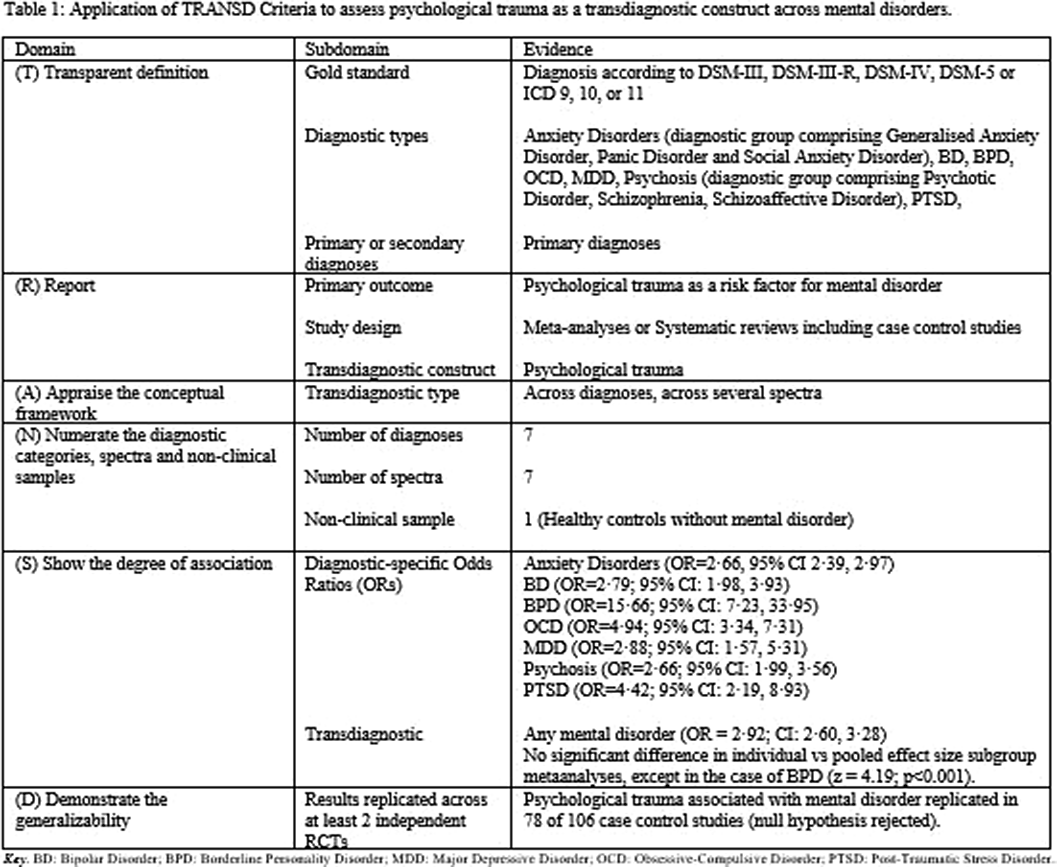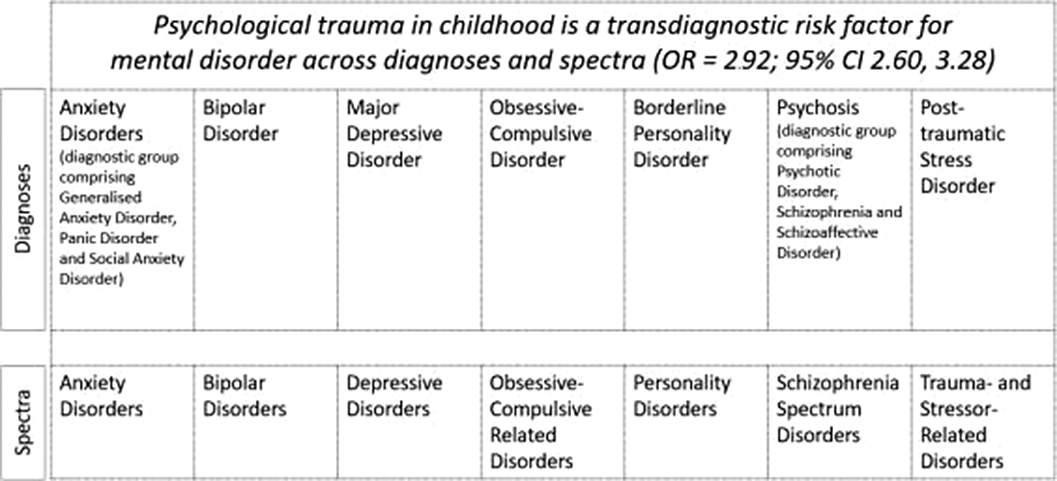No CrossRef data available.
Published online by Cambridge University Press: 19 July 2023
This umbrella review is the frst to systematically examine psychological trauma as a transdiagnostic risk factor across psychiatric conditions.
This review aimed to be the frst to evaluate whether psychological trauma fulflilled criteria as a transdiagnostic risk factor cutting across various diagnostic categories and spectra. Transdiagnosticity will be assessed against the framework of the TRANSD criteria (Fusar-Poli, World Psychiatry 2019; 18 361-362). The paper additionally aimed to analyse the association of psychopathology with specifc trauma type.
We searched Pubmed, Scopus, and PsycNET databases from inception until 01/05/2021 for systematic reviews/meta-analyses evaluating the association between psychological trauma and at least one diagnosed mental disorder. We re-calculated the odds ratio (OR), then classifed the association as convincing, highly suggestive, suggestive, or weak, based on the number of cases and controls with and without psychological trauma, random-efects p value, the 95% conf- dence interval of the largest study, heterogeneity between studies, 95% prediction interval, small-study efect, and excess significance bias. Additional outcomes were the association between specifc trauma types and specific mental disorders, and a sensitivity analysis for childhood trauma. Transdiagnosticity was assessed using TRANSD criteria. The review was pre-registered in Prospero CRD42020157308 and followed PRISMA/MOOSE guidelines.
Fourteen reviews met inclusion criteria, comprising 16,277 cases and 77,586 controls. Psychological trauma met TRANSD criteria as a transdiagnostic factor across diferent diagnostic criteria and spectra. There was highly suggestive evidence of an association between psychological trauma at any time-point and any mental disorder (OR=2.92) and between childhood trauma and any mental disorder
(OR=2.90). Regarding specifc trauma types, convincing evidence linked physical abuse (OR=2.36) and highly suggestive evidence linked sexual abuse (OR=3.47) with a range of mental disorders, and convincing evidence linked emotional abuse to anxiety disorders (OR=3.05); there were no data for emotional abuse with other disorders.
Image:

Image 2:

These fndings highlight the importance of preventing early traumatic events and providing trauma-informed care in early intervention and psychiatric services.
None Declared
Comments
No Comments have been published for this article.